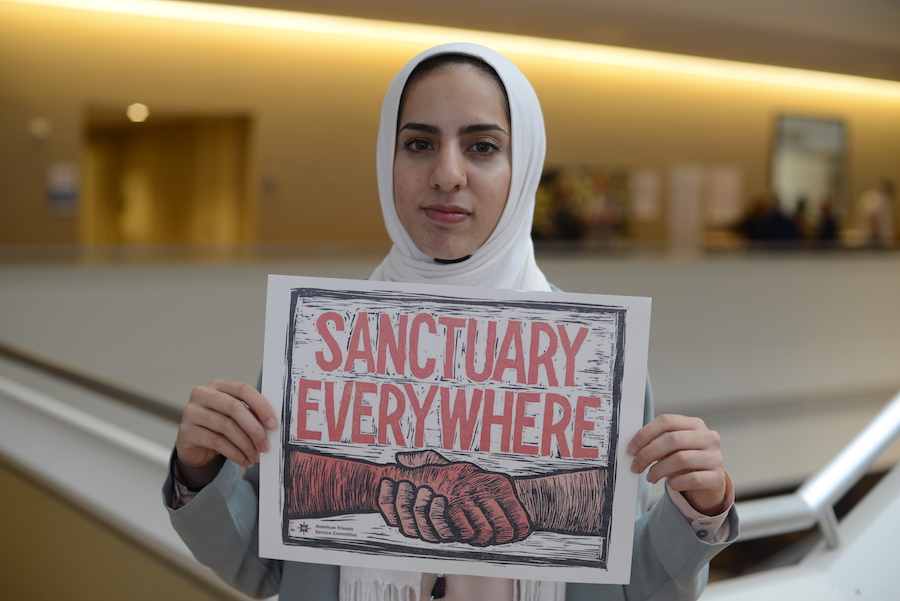
The month of Ramadan unites Muslims all around the world in learning patience and strength in times of adversity while centering ourselves in resilience and hope and surrendering ourselves to God through detachment from worldly desires.
Muslims around the world are also united through our experiences with systems that continue to demonize all who fit its racialized construction of what it means to be Muslim and the consequences of the “war on terror.”
For many Muslims like me, it is increasingly difficult to focus our energy on celebrating this holy month, look deep within ourselves, and feed our spirituality when we’re exhausted from working to resist racist policies that affect our everyday lives and rob us of our basic humanity.
And I am dedicating this writing to many other Muslim activists and organizers who have come to know the trauma of resisting.
Last Ramadan, I was coping with a large deal of grief. It had been only a few months since the Trump administration had implemented its first iteration of the Muslim ban, and I was deeply involved in important and necessary labor of resistance work.
As a policy fellow working and organizing in Washington, D.C. last year, living just a few metro stops away from the White (supremacist) House, I adopted a crisis mentality that informed the way I engaged with the city and the world around me. I was terrified, disappointed, heartbroken, outraged, and exhausted. I showed up at White House protests and rallies around the nation’s capital because it was a means of survival. My phone, email, and social media were overwhelmed with messages from friends worried about their loved ones in Yemen and Syria, whom they feared they would never be able to see again.
As someone who was born in Egypt and became a naturalized citizen in high school, I was quickly reminded that my status and my citizenship did not protect me. I, and people who look and live like me, are targets of violence, surveillance, and violations on our civil liberties here and abroad. I feel it while grocery shopping in the suburbs of Tennessee, where I now live. I feel it while organizing against anti-Muslim policies and speaking out against Guantanamo, the military industrial complex, and the social construction of terrorism—whatever community I’m in.

Knowing that Muslims are constant targets in the U.S. instills fears in us—fears that continue to be validated by real experiences. I've seen firsthand the devastation of a mother repeatedly being denied a visa to travel to the U.S. to be with her dying daughter. In communities around the country, federally-funded initiatives that are ostensibly designed to “counter violent extremism” racially profile, surveil, and criminalize Muslims and other Black and brown people in the U.S. Police have targeted Muslims with social media surveillance for years. I have known Black Muslims to be denied entry into the U.S., despite having an entry visa, because of religious Arabic postings.
These have been everyday realities for Muslims living in the U.S. and those who should be welcomed here—realities that we remain committed to resisting, no matter the cost.
For Muslims, the month of Ramadan should be a time of reflection, spiritual awareness, and rejuvenation. We are reminded to detach our bodies and minds from worldly desires, and instead depend on the Creator of our bodies to feed us, feed our souls, and our spirituality. We are reminded that “God feeds [us] against hunger and [makes us] safe from fear” (Quran 104:4).
This Ramadan, I will have faith that just as our hunger is satisfied especially during long summer days of fasting during Ramadan, we can find solace and empowerment in knowing that we are promised safety and protection from our fears.
Check out Dina's latest blog post "Four ways to support Muslim friends and family and counter Islamophobia during Ramadan."